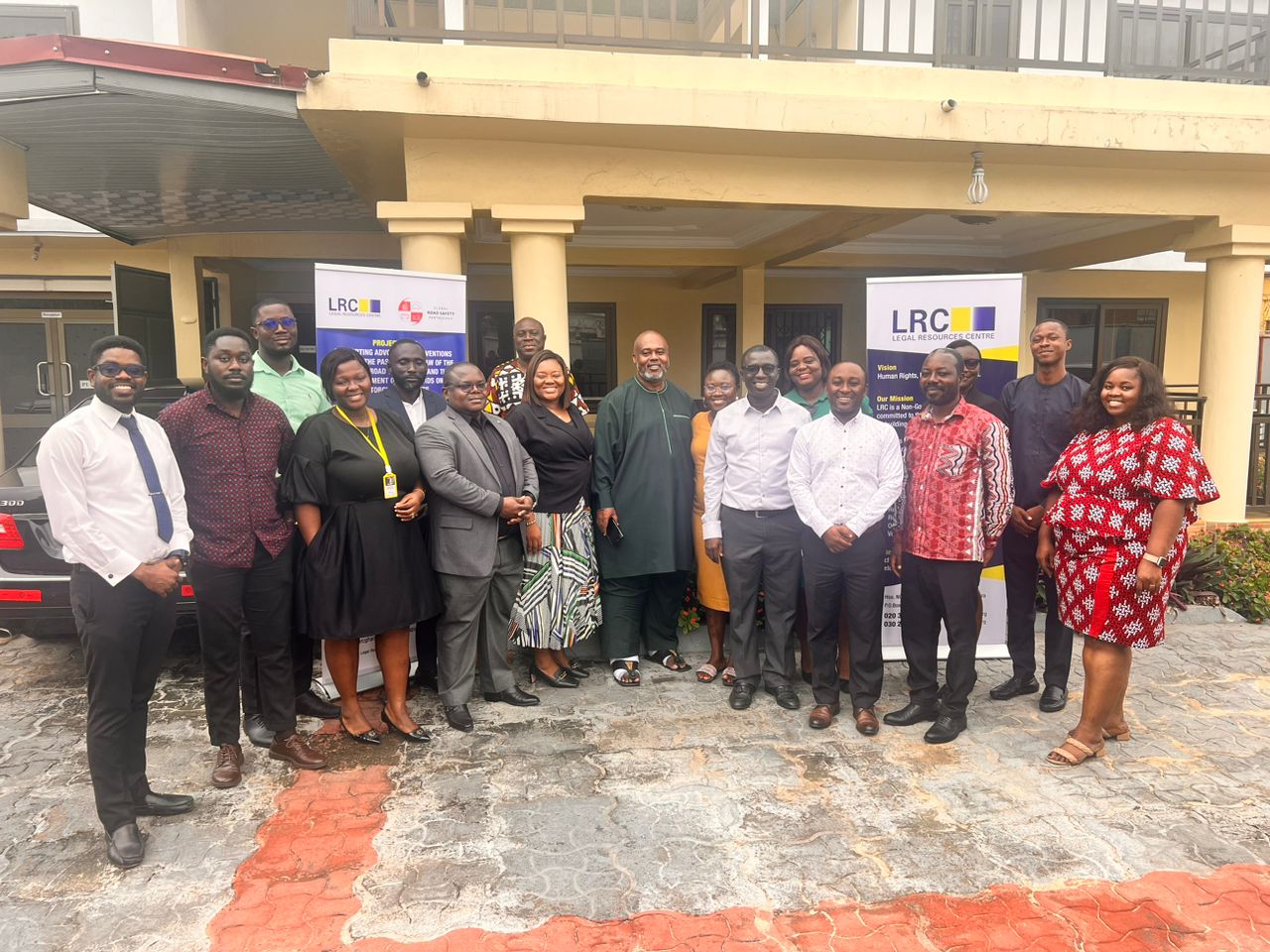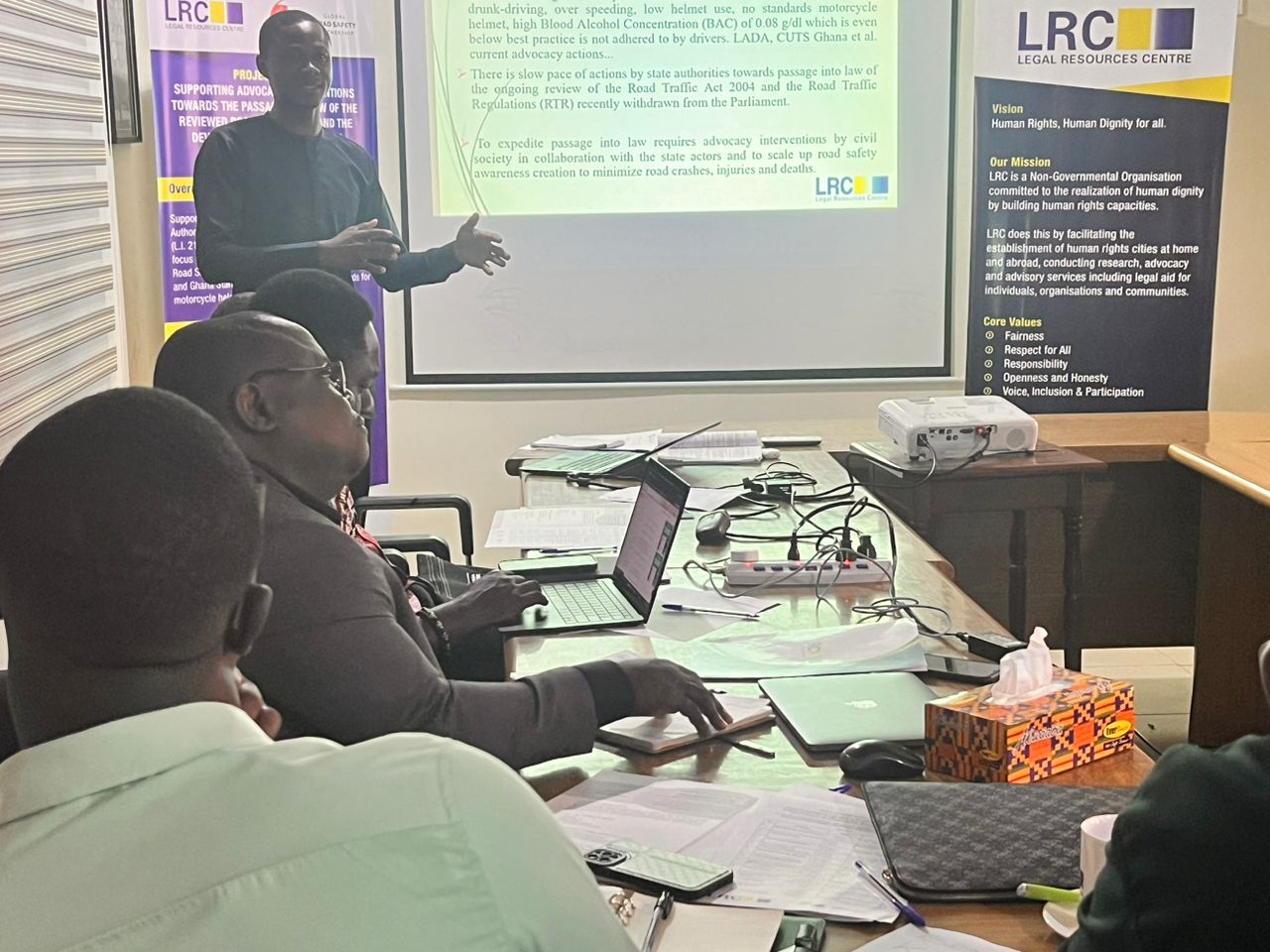
The Legal Resources Centre (LRC), a national non-governmental organisation deeply committed to the realisation of human dignity, has advocated for the development of standards on motorcycle helmets fit for Ghana`s weather conditions.
According to the LRC, at present, Ghana does not have standards developed for motorcycle helmets. Hence, there are all manner of helmets on the market.
Although helmet use is mandatory for both the rider and pillion rider, there are no helmet quality standards provided in the current Road Traffic Regulations, 2012 (L.I. 2180), which is undergoing review after recently being withdrawn from the Parliament of Ghana for various reasons, including granting Members of Parliament (MPs), Judges, and Ministers the privilege to use sirens and to exempt them from speed limits while performing their official duties.
This was made known yesterday, July 30, 2024, at the offices of the LRC during a stakeholders meeting composed of representatives from both state and non-state actors working in the road safety industry in Ghana.
This is under its project, which spans from June 2024 to December 2025 and is being implemented with the caption “Supporting Advocacy Interventions Towards The Passage Into Law Of The Reviewed Road Traffic Act And The Development Of Standards Motorcycle Helmets.”

Presenting on project deliverables, a Programme Officer of the LRC, Enock Jengre, disclosed that because Ghana does not have standards developed for motorcycle helmets, this has over the years led to a proliferation of inferior (unsafe) crash helmets in the country that are unable to protect the riders in the event of a crash. Providing quality regulations for crash helmets will ensure that only safe and standard crash helmets are allowed into the country to improve road safety.
According to Mr. Jengre, there is a need for special specifications on crash helmets to be developed separately for both children and adults to meet international standards.
On her part, the Executive Director of the LRC, Daphne Lariba Nabila, indicated that the LRC, having engaged both state agencies and non-state institutions on road safety and their commitment and assurance towards the development of standards, will facilitate the development of standards by working with a core working group composed of representatives from the Ministry of Transport (MoT), the National Road Safety Authority (NRSA), the Ghana Standards Authority (GSA), and the Driver Vehicle Licensing Authority (DVLA).
According to her, the LRC has already engaged these institutions in the development of standards for motorcycle helmets. She also added that the LRC is being supported by the Global Road Safety Partnership (GRSP) on this project to carry out this initiative, including one of its objectives aimed at supporting the MoT in the review of the Road Traffic Regulations (L.I. 2180) and the Road Traffic Act, 2004 (Act 683) with a focus on speed and ensuring that the revised provisions meet global best practices.
In his brief remarks, Mr. Osei Kufuor, the Coordinator of Bloomberg Initiatives for Global Road Safety, touched on the need for collaboration among civil society organisations (CSOs) to be able to contribute meaningfully towards minimising road crashes, injuries, and deaths in Ghana.
He called on the CSOs working in the road safety industry to build partnerships and synergies in their advocacy interventions on the five key behavioural risk factors causing road traffic injuries, such as drunk driving, helmet use, the child restraint system, speeding, and not wearing a seatbelt.
Source: https://rainbowradioonline.com/2024/08/01/127544/?amp=1





